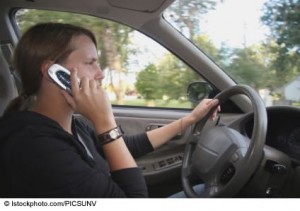Mothers play an important role in determining how much fathers get involved in taking care of their infants, according to new research.
A study of 97 couples found that fathers were more involved in the day-to-day care of their infants when they received active encouragement from their wife or partner.
In fact, this encouragement was important even after taking into account fathers’ and mothers’ views about how involved dads should be, the overall quality of the couple’s parenting relationship, and how much mothers worked outside the home.
In addition, fathers’ beliefs about how involved they should be in child care did not matter when mothers were highly critical of fathers’ parenting. In other words, fathers didn’t put their beliefs into practice when faced with a particularly judgmental mother. [continue reading…]
Contrary to popular notions about what is normal or healthy, new research has found that it is okay not to express one’s thoughts and feelings after experiencing a collective trauma, such as a school shooting or terrorist attack.
In fact, people who choose not to express their feelings after such an event may be better off than those who do talk about their feelings, according to University at Buffalo psychologist Mark Seery, Ph.D., lead author of a study to appear in the June issue of Journal of Consulting and Clinical Psychology.
The study investigated the mental and physical effects of collective traumas on people who are exposed to a tragedy but who do not experience a direct loss of a friend or family member. It focused on people’s responses to the terrorist attacks of Sept. 11, 2001, but the results may generalize to include responses to other collective traumas.
The findings have important implications for expectations of how people should respond in the face of a collective trauma affecting a whole community or even an entire nation, says Seery, an assistant professor of psychology. [continue reading…]
 The notion that talking on a cell phone while driving a car isn’t safe seems obvious, yet what happens in the brain while it juggles the two tasks is not.
The notion that talking on a cell phone while driving a car isn’t safe seems obvious, yet what happens in the brain while it juggles the two tasks is not.
A study by a University of South Carolina psychology researcher featured in the journal, Experimental Psychology, provides a better understanding of why language – talking and listening, including on a cell phone – interferes with visual tasks, such as driving.
In two different experiments, associate professor of psychology Dr. Amit Almor found that planning to speak and speaking put far more demands on the brain’s resources than listening.
“We measured their attention level and found that subjects were four times more distracted while preparing to speak or speaking than when they were listening,” said Almor of the 47 people who participated in the experiment. “People can tune in or out as needed when listening.” [continue reading…]
Gina Steppes recently featured Vision article suggest that children in the US and other countries are increasingly struggling with anxiety and unhappiness.
In the year 2000—even before terrorism hit so close to home for Americans on September 11, 2001, and before the United States went to war with Iraq—an interesting study appeared in the American Psychological Association’s Journal of Personality and Social Psychology. In her report, social psychologist Jean Twenge observed that anxiety levels in American children had increased dramatically since the first effective scale for measuring childhood anxiety was published in 1956.
The increases were so large and linear, Twenge explained, that by the 1980s normal children scored higher on the anxiety scale than did children in the 1950s who were psychiatric patients. The culprits? According to Twenge, disconnected relationships and looming environmental threats were the underlying factors. In particular she notes that “changes in the divorce rate, the birth rate, and the crime rate are all highly correlated with children’s anxiety.” In contrast, she discovered that “surprisingly, economic indices had very little independent effect on anxiety. Apparently, children are less concerned with whether their family has enough money than whether it is threatened by violence or dissolution.”
If modern young Americans are indeed feeling the strain, they are certainly not alone in the world. According to a March 2008 article in the online Independent, Britain may actually be the “unhappiest place on earth” for children. Education editor Richard Garner notes the “welter of evidence highlighting the fragile states of mind of many of the country’s seven million primary and secondary school pupils,” while reporting that British teachers had called for an independent Royal Commission to discover the reasons behind the widespread anxiety and unhappiness among the nation’s children.
Link to read article
Source: Vision

